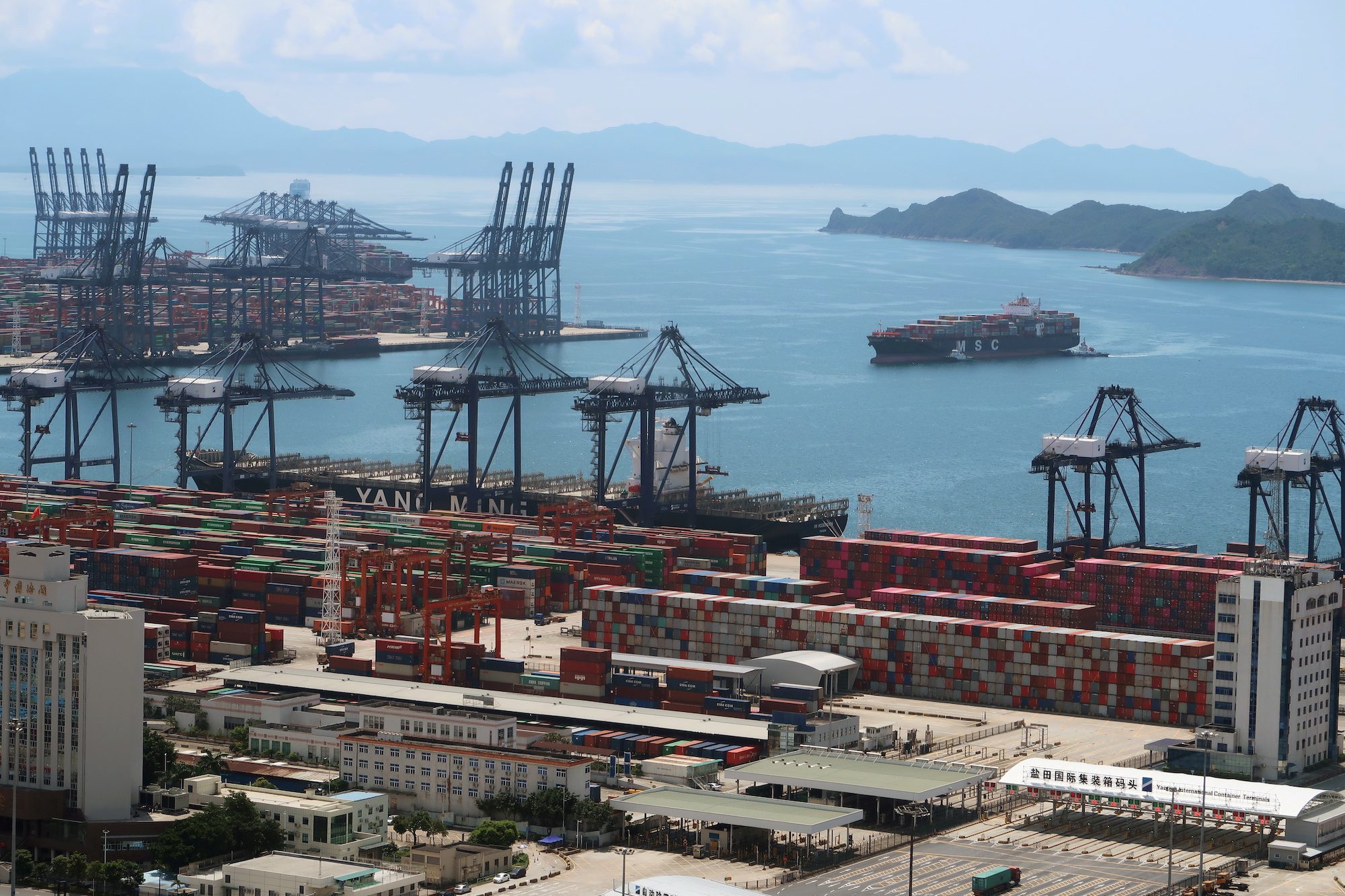Interior’s Burgum Floats Shipping Gas From Alaska North Slope
By Ari Natter and Ruth Liao Oct 24, 2025 (Bloomberg) –US Secretary of the Interior Doug Burgum floated the concept of storing natural gas produced in Alaska’s North Slope and shipping...

By Sam Whelan (The Loadstar) –
South China’s port congestion has gone from bad to worse – delays at Yantian are spilling over to nearby Shekou and Nansha.
When the bottleneck began over two weeks ago, Hutchison-run Yantian International Container Terminal (YICT) blamed out-of-whack shipping schedules for suspending laden export operations.
Since then, however, multiple shipping lines, including Maersk, have blamed Covid-19 for causing the poor port productivity in the Pearl River Delta.
The company said yesterday: “The situation continues to deteriorate as more positive Covid cases have been confirmed in Shenzhen, where Yantian and Shekou ports are located, and in Guangzhou, where Nansha port is located.
“YICT yard density remains elevated with disinfection and quarantine measures being continuously implemented by local authorities.”
Maersk said it was now expecting delays of 14 days, with productivity at berths in the western area of YICT, where mainline vessels call, still only at 30%.
Export container gate-in times have been cut to three days of a vessel’s estimated time of arrival at Shekou, and to seven days at Nansha, the latter seeing heavy traffic congestion resulting in five-hour delays for empty container pick-up and laden container gate-in, says Maersk.
Stefan Holmqvist, MD of Norman Global Logistics Hong Kong, said: “Pandemic control efforts and cargo congestion are causing transport and logistics delays across the entire region.
“Substantial traffic jams are causing a shortage of trucking capacity, container pick-ups see delays of 10 hours or more and many hauliers require overnight time for haulage, storage and lifting, adding to costs.”
According to the latest AIS data from MarineTraffic, there are currently 36 vessels with a reported destination of Yantian at anchor, including 33 cargo ships. And with no sign of the situation improving, shipping lines have massively increased the number of Yantian port omissions.
Lars Jensen, CEO of Vespucci Maritime, said Hapag-Lloyd’s list of planned port omissions for Yantian over the next four weeks had quadrupled to 16, compared with just four only a few days ago. And he noted that Maersk’s advisory yesterday listing 40 vessel arrivals affected by the congestion was “quite an escalation” from just three days ago, when the shipping line said “several” vessels would be impacted, with cargo shifted to alternate sailings.
Given Yantian’s throughput of 13.3m teu last year and the current drop in productivity claimed by Maersk, Mr Jensen estimated there was around 25,500 teu a day the port had been unable to handle since the crisis began.
“Putting this in context, when Suez was blocked by the Ever Given, it impacted a daily flow of 55,000 teu. But that ‘only’ lasted six days. In Yantian, we are at 14 days and counting –and there is the impact on Nansha and Shekou,” he added.
“Every day increases the backlog of cargo. Once the ports re-open to normal operations we should expect a surge of cargo – at least to the degree there are even vessels available to handle this. This in turn will cause ripples of potential congestion at destinations with a lag time of some two-to-five weeks.”
The Loadstar is known at the highest levels of logistics and supply chain management as one of the best sources of influential analysis and commentary.
Subscribe to gCaptain Daily and stay informed with the latest global maritime and offshore news
Essential news coupled with the finest maritime content sourced from across the globe.
Sign Up